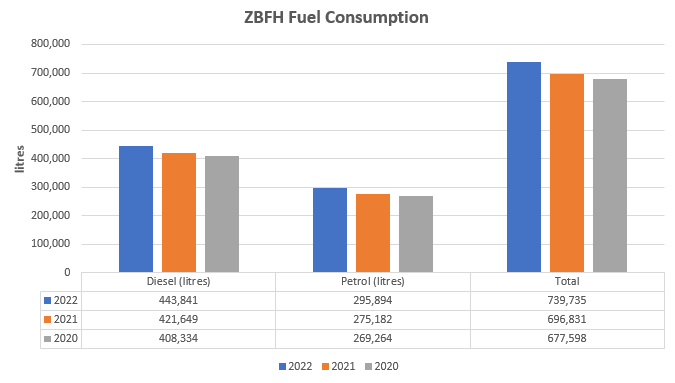By ETimes
To keep the lights on and avoid uninterrupted operations, ZB Financial Holdings (ZBFH) consumed 443,841 litres of diesel in 2022, representing a 5.26% increase from 421,649 litres of diesel in 2021.
The impact of Zimbabwe’s unreliable energy supply, which is now one of the nation’s major difficulties, comes as the government is attempting to entice investment into the nation out of concern that the frequent power outages would undermine investor confidence.
In 2020, ZBFH consumed 408,334 litres of diesel.
There was also a rapid growth in petrol consumption.
ZBFH’s petrol consumption jumped 7.52% to 295,894 litres in 2022 from 275,182 litres in 2021. In 2020, it was 269,264 litres.
ZBFH said in its 2022 annual report that energy is crucial to our operations since its IT systems are significantly reliant on it.
“Additionally, our operations are powered by petrol and diesel for motor vehicles and generators. As such, relying on these energy sources can be associated with positive or negative impacts. The group’s position is to transition our operations and investments to clean energy sources,” ZBFH stated.
It installed a solar system at its corporate headquarters and is taking steps to track and control our fuel usage. 
“Our goal is to install functional solar systems at all ZBFH Group premises at a rate of 5 systems per year. For the year under review, we managed to install and solar systems and raised awareness on energy conservation across operations. In our investment practices, we aim to prioritise clients who are biased towards renewable energy.”
Load shedding results in a loss of production time, a decline in the marginal productivity of workers, increased costs for businesses looking for alternative power supply and damage to industrial equipment.
If the government considers the prospects of successfully achieving Vision 2030, experts say that the availability of power is one of the fundamental building blocks of enhanced output and capacity utilisation for industry – Harare



